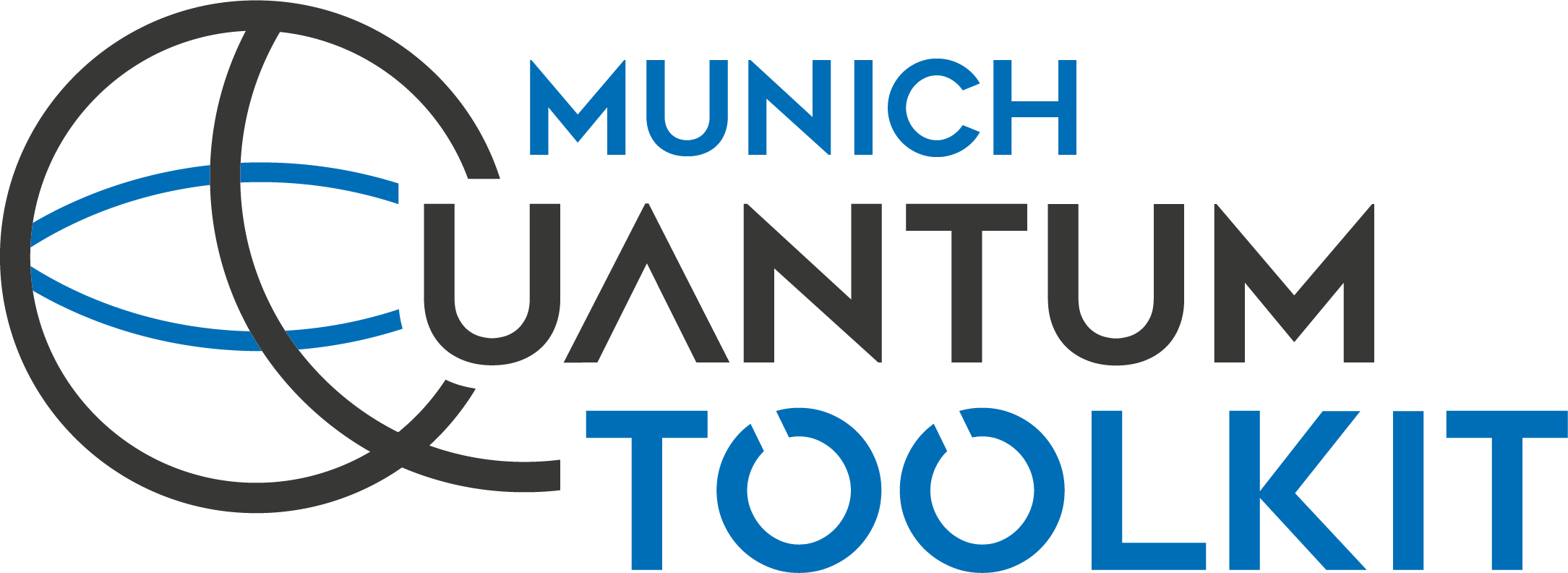https://github.com/cda-tum/mqt-ddsim
MQT DDSIM - A quantum circuit simulator based on decision diagrams written in C++
https://github.com/cda-tum/mqt-ddsim
decision-diagrams jku mqt python quantum quantum-circuit-simulator quantum-circuits quantum-computing tum
Last synced: 6 months ago
JSON representation
MQT DDSIM - A quantum circuit simulator based on decision diagrams written in C++
- Host: GitHub
- URL: https://github.com/cda-tum/mqt-ddsim
- Owner: cda-tum
- License: mit
- Created: 2020-02-11T10:08:51.000Z (over 5 years ago)
- Default Branch: main
- Last Pushed: 2024-05-13T18:27:15.000Z (over 1 year ago)
- Last Synced: 2024-05-20T12:57:47.143Z (over 1 year ago)
- Topics: decision-diagrams, jku, mqt, python, quantum, quantum-circuit-simulator, quantum-circuits, quantum-computing, tum
- Language: C++
- Homepage: https://mqt.readthedocs.io/projects/ddsim
- Size: 1.62 MB
- Stars: 121
- Watchers: 7
- Forks: 25
- Open Issues: 13
-
Metadata Files:
- Readme: README.md
- License: LICENSE
Awesome Lists containing this project
- quantum-awesome - https://github.com/cda-tum/ddsim
- awesome-quantum-software - MQT DDSIM - Quantum circuit simulator using decision diagrams as a datastructure. Python interface and Qiskit backend via the [`mqt.ddsim`](https://pypi.org/p/mqt.ddsim) Python package. (Quantum simulators)
README
[](https://pypi.org/project/mqt.ddsim/)

[](https://opensource.org/licenses/MIT)
[](https://github.com/cda-tum/mqt-ddsim/actions/workflows/ci.yml)
[](https://github.com/cda-tum/mqt-ddsim/actions/workflows/cd.yml)
[](https://mqt.readthedocs.io/projects/ddsim)
[](https://codecov.io/gh/cda-tum/mqt-ddsim)
# MQT DDSIM - A quantum circuit simulator based on decision diagrams written in C++
A tool for classical quantum circuit simulation developed as part of the [_Munich Quantum Toolkit (MQT)_](https://mqt.readthedocs.io) by the [Chair for Design Automation](https://www.cda.cit.tum.de/) at the [Technical University of Munich](https://www.tum.de/).
It builds upon [MQT Core](https://github.com/cda-tum/mqt-core), which forms the backbone of the MQT.
If you have any questions, feel free to contact us via [quantum.cda@xcit.tum.de](mailto:quantum.cda@xcit.tum.de) or by creating an [issue](https://github.com/cda-tum/mqt-ddsim/issues) on GitHub.
## Getting Started
DDSIM bundled with the provider and backends for Qiskit is available via [PyPI](https://pypi.org/project/mqt.ddsim/) for Linux, macOS, and Windows and supports Python 3.9 to 3.13.
```console
(venv) $ pip install mqt.ddsim
```
The following code gives an example on the usage:
```python3
from qiskit import QuantumCircuit
from mqt import ddsim
circ = QuantumCircuit(3)
circ.h(0)
circ.cx(0, 1)
circ.cx(0, 2)
print(circ.draw(fold=-1))
backend = ddsim.DDSIMProvider().get_backend("qasm_simulator")
job = backend.run(circ, shots=10000)
counts = job.result().get_counts(circ)
print(counts)
```
**Detailed documentation on all available methods, options, and input formats is available at [ReadTheDocs](https://mqt.readthedocs.io/projects/ddsim).**
## System Requirements and Building
The implementation is compatible with any C++17 compiler and a minimum CMake version of 3.19.
Please refer to the [documentation](https://mqt.readthedocs.io/projects/ddsim) on how to build the project.
Building (and running) is continuously tested under Linux, macOS, and Windows using the [latest available system versions for GitHub Actions](https://github.com/actions/virtual-environments).
## References
DDSIM has been developed based on methods proposed in the following papers:
- A. Zulehner and R. Wille, "[Advanced Simulation of Quantum Computations](https://www.cda.cit.tum.de/files/eda/2018_tcad_advanced_simulation_quantum_computation.pdf)," Transactions on CAD of Integrated Circuits and Systems (TCAD), 2019
- S. Hillmich, I.L. Markov, and R. Wille, "[Just Like the Real Thing: Fast Weak Simulation of Quantum Computation](https://www.cda.cit.tum.de/files/eda/2020_dac_weak_simulation_quantum_computation.pdf)," in Design Automation Conference (DAC), 2020
- S. Hillmich, R. Kueng, I. L. Markov, and R. Wille, "[As Accurate as Needed, as Efficient as Possible: Approximations in DD-based Quantum Circuit Simulation](https://www.cda.cit.tum.de/files/eda/2021_date_approximations_dd_baed_quantum_circuit_simulation.pdf)," in Design, Automation and Test in Europe (DATE), 2021
- L. Burgholzer, H. Bauer, and R. Wille, "[Hybrid Schrödinger-Feynman Simulation of Quantum Circuits With Decision Diagrams](https://www.cda.cit.tum.de/files/eda/2021_qce_hybrid_schrodinger_feynman_simulation_with_decision_diagrams.pdf)," Conference on Quantum Computing and Engineering (QCE), 2021
- L. Burgholzer, A.Ploier, and R. Wille, "[Exploiting Arbitrary Paths for the Simulation of Quantum Circuits with Decision Diagrams](https://www.cda.cit.tum.de/files/eda/2022_date_exploiting_arbitrary_paths_simulation_quantum_circuits_decision_diagrams.pdf)," in Design, Automation and Test in Europe (DATE), 2022
- T. Grurl, J. Fuß, and R. Wille, "[Noise-aware Quantum Circuit Simulation With Decision Diagrams](https://www.cda.cit.tum.de/files/eda/2022_tcad_noise-aware_quantum_circuit_simulation_with_decision_diagrams.pdf)," Transactions on CAD of Integrated Circuits and Systems (TCAD), 2022.
---
## Acknowledgements
The Munich Quantum Toolkit has been supported by the European
Research Council (ERC) under the European Union's Horizon 2020 research and innovation program (grant agreement
No. 101001318), the Bavarian State Ministry for Science and Arts through the Distinguished Professorship Program, as well as the
Munich Quantum Valley, which is supported by the Bavarian state government with funds from the Hightech Agenda Bayern Plus.





